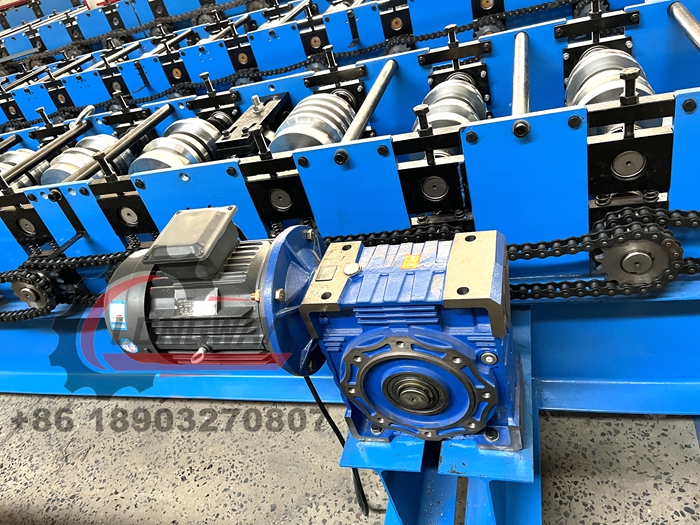custom metal roofing panel machine
Innovations in Custom Metal Roofing Panel Machines
As the construction industry continues to evolve, so does the technology behind key components like roofing systems. Among the most significant advancements have been in custom metal roofing panel machines. These machines facilitate the efficient production of metal roofing panels tailored to specific designs and requirements, making them essential in today's competitive building landscape.
The Need for Customization
Customization in roofing solutions is increasingly important. As architects and builders seek to create unique structures, they require materials that can meet specific aesthetic and functional criteria. Custom metal roofing panel machines enable manufacturers to produce panels of various shapes, sizes, and finishes. This flexibility allows for a wide range of applications, from residential homes to large commercial buildings.
How Custom Metal Roofing Panel Machines Work
These machines operate using advanced technology that can include computer numerical control (CNC), automated cutting tools, and specialized roll-forming equipment. Typically, the process begins with a design file that outlines the specifications of the roofing panels. Operators can input these designs into the machine, which automates the cutting, forming, and finishing processes.
Roll-forming technology is particularly noteworthy. It involves feeding metal sheets through a series of rollers that gradually shape the material into a specific profile. This continuous process not only enhances efficiency but also ensures consistent quality across all produced panels. Additionally, machines can be configured to produce different styles of panels, such as standing seam, corrugated, and tile profiles.
Materials and Finishes
One of the standout features of custom metal roofing panel machines is their compatibility with a variety of materials. These include steel, aluminum, copper, and zinc, each offering different benefits regarding durability, weight, and aesthetics. Moreover, manufacturers can apply different finishes, such as paint coatings, galvanization, or traditional patinas, enhancing both the appearance and longevity of the roofing products.
custom metal roofing panel machine

The selection of materials and finishes is essential for meeting specific building codes, environmental considerations, and client preferences. Custom metal roofing panel machines facilitate this flexibility, enabling manufacturers to cater to various market segments, including luxury homes, industrial complexes, and environmentally sustainable buildings.
Efficiency and Sustainability
In today’s eco-conscious market, efficiency and sustainability are paramount. Custom metal roofing panel machines contribute to these goals in several ways. By optimizing material usage and minimizing waste during production, manufacturers can reduce their environmental footprint. Furthermore, metal roofing itself offers significant sustainability benefits. Metal roofs are often made from recycled materials and can be fully recycled at the end of their life cycle.
Energy efficiency is another critical aspect. Many modern metal roofs are designed with reflective coatings that reduce heat absorption, helping to lower energy bills in heated climates. Custom machines can produce panels that maximize these energy-saving features.
The Future of Metal Roofing Production
As technology advances, the future of custom metal roofing panel machines appears bright. Innovations in automation, robotics, and artificial intelligence may further enhance their capabilities, allowing for even faster production times and greater customization options. Additionally, as the construction industry continues to prioritize sustainability, we can expect to see more eco-friendly practices integrated into the manufacturing process.
Conclusion
Custom metal roofing panel machines are revolutionizing the way roofing materials are produced. With their ability to deliver customized solutions efficiently and sustainably, they are integral to modern construction practices. As technology continues to evolve, these machines will undoubtedly play a crucial role in meeting the ever-changing demands of architects, builders, and homeowners alike, paving the way for innovative and sustainable building designs. Whether for residential or commercial projects, the future of roofing is undoubtedly leaner, greener, and more customized than ever before.
-
Roof Panel Machines: Buying Guide, Types, and PricingNewsJul.04, 2025
-
Purlin Machines: Types, Features, and Pricing GuideNewsJul.04, 2025
-
Metal Embossing Machines: Types, Applications, and Buying GuideNewsJul.04, 2025
-
Gutter Machines: Features, Types, and Cost BreakdownNewsJul.04, 2025
-
Cut to Length Line: Overview, Equipment, and Buying GuideNewsJul.04, 2025
-
Auto Stacker: Features, Applications, and Cost BreakdownNewsJul.04, 2025
-
Top Drywall Profile Machine Models for SaleNewsJun.05, 2025








